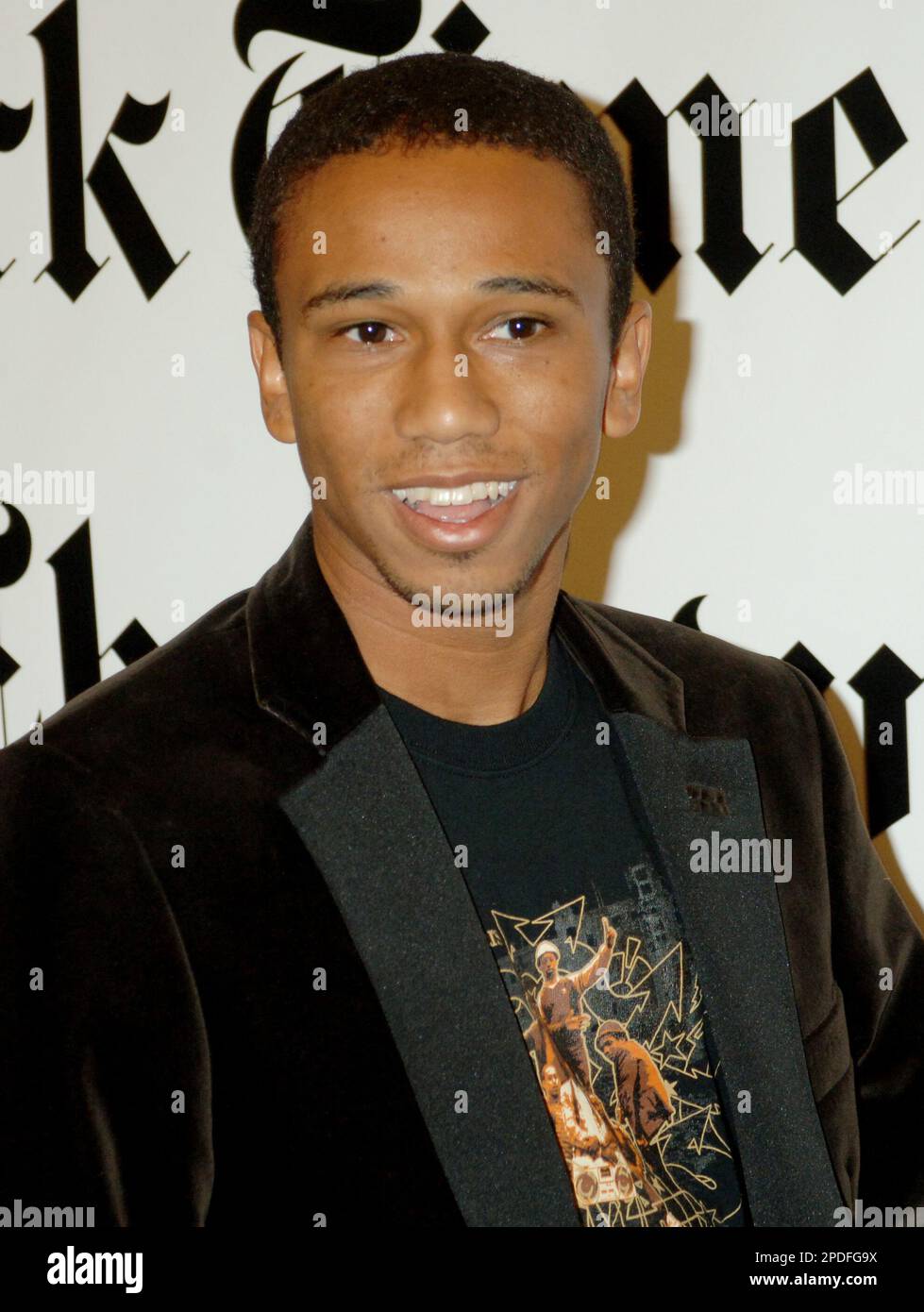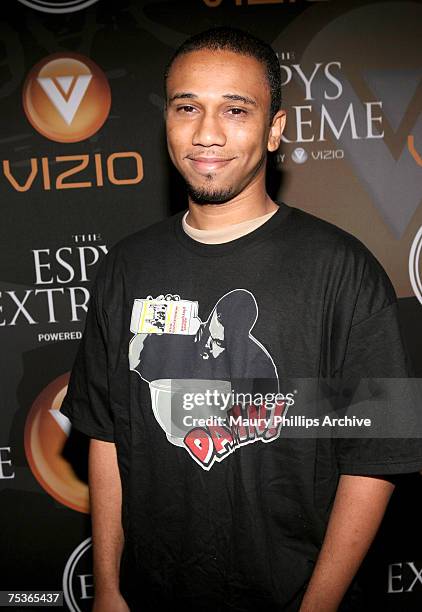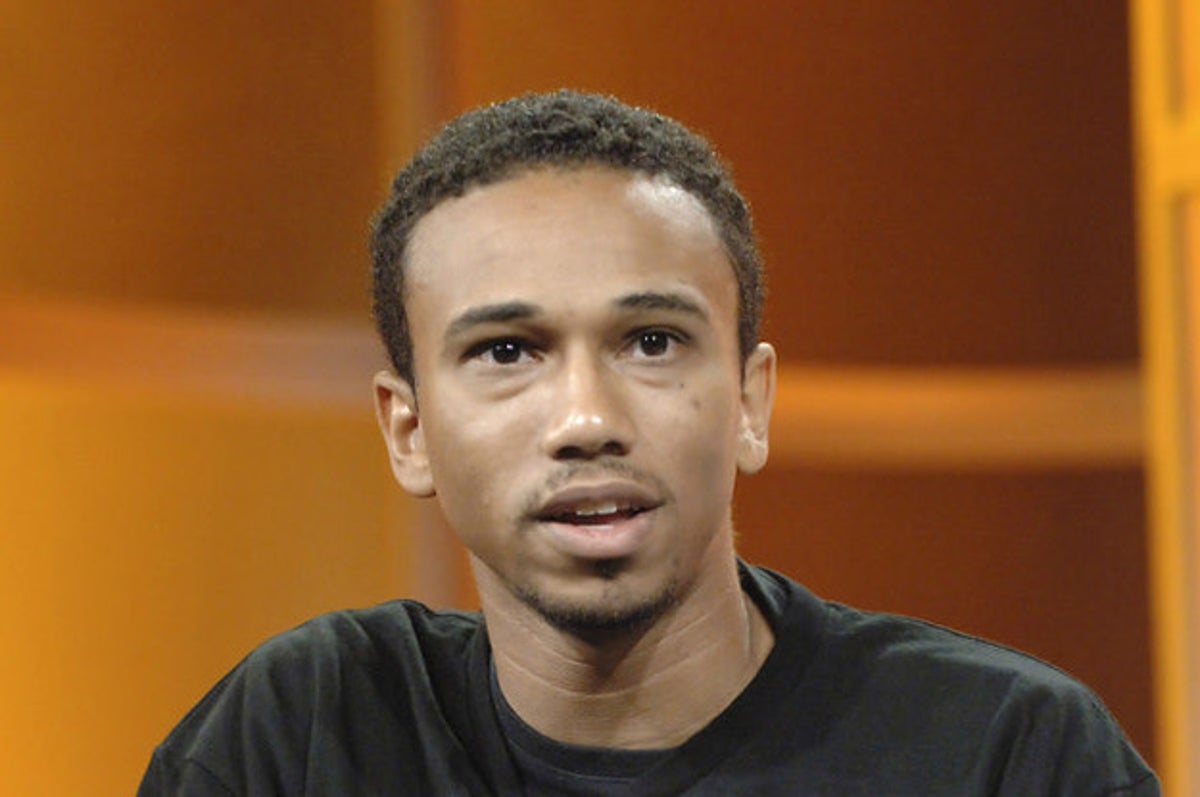Aaron McGruder-A Look At His Work
When you think about voices that really got people talking, that, you know, made us look at things a bit differently, Aaron McGruder's name often comes up. He's the mind behind "The Boondocks," a creation that, in some respects, truly shaped how many of us saw cartoons, and even how we talked about serious stuff like race and society. It's almost as if his work gave a fresh way to approach topics that were often kept quiet.
His comic strip, which later became a very popular animated show, had a way of cutting right to the heart of matters. It wasn't just about making people laugh; it was about getting folks to think, perhaps even to challenge what they believed. You see, his characters, especially Huey Freeman, spoke with a kind of plain truth that felt both familiar and, well, a little bit startling at times, didn't it?
So, we're going to spend some time exploring what made Aaron McGruder's contributions so memorable. We'll look at where he came from, what pushed him to create, and how his stories managed to stay with us, really, long after the last episode aired. It's quite a story, actually, of someone who used art to make a strong point.
- Is Project X Based On A True Story
- Penelope Cruz Ethnicity
- What Is Jeff Foxworthys Net Worth
- Project X Original Story
- Clint Eastwood Grandchildren
Table of Contents
- The Person Behind The Boondocks
- What Shaped Aaron McGruder's Voice?
- The Boondocks - A Cultural Moment
- How Did Aaron McGruder's Series Speak to Us?
- Beyond Huey and Riley
- What Other Projects Did Aaron McGruder Take On?
- His Lasting Impact
- Why Does Aaron McGruder Still Matter Today?
The Person Behind The Boondocks
Aaron McGruder, the fellow who brought us the sharp observations of "The Boondocks," has a background that, in some ways, really helped shape his unique perspective. He was born in Chicago, Illinois, but spent a good chunk of his growing-up years in Columbia, Maryland. This move, perhaps, gave him a chance to see different parts of the American experience, which, you know, might have fed into his later work. He went to the University of Maryland, College Park, where he studied African American studies. This academic path, it seems, gave him a solid base for the kind of social commentary that would become a trademark of his creations.
It was during his time in college that the beginnings of "The Boondocks" started to take shape. He first shared the comic strip in the school newspaper, "The Diamondback." This early platform allowed him to try out his ideas, to see what resonated with readers. The strip quickly got attention for its frank talk about race, politics, and the everyday oddities of life. It was pretty clear, even then, that Aaron McGruder had a way with words and pictures that could get people thinking, and sometimes, just a little bit uncomfortable, too.
His approach wasn't about making things easy or pleasant; it was about showing things as he saw them, with a kind of raw honesty. This commitment to his vision, even when it might have ruffled some feathers, is something that truly stands out about his work. He was, in a way, just telling it like it was, and that, perhaps, is why so many people connected with what he put out there.
Personal Details and Bio Data
| Full Name | Aaron Vincent McGruder |
| Birth Date | May 29, 1974 |
| Birth Place | Chicago, Illinois, USA |
| Occupation | Writer, Cartoonist, Producer |
| Notable Works | The Boondocks (comic strip and TV series), Black Jesus |
What Shaped Aaron McGruder's Voice?
You might wonder what experiences or ideas truly formed the distinct way Aaron McGruder expressed himself. Well, for one thing, growing up in different places, from a big city like Chicago to a more suburban setting in Maryland, surely offered him a varied view of American life. This kind of varied exposure can often give someone a broader lens through which to see the world, can't it? His college studies, particularly in African American studies, certainly provided a strong academic structure for understanding history and social dynamics. This academic background, it appears, gave him the tools to frame his observations with a good deal of insight.
Then there's the influence of hip-hop culture, which was really coming into its own during his formative years. The music, the attitudes, the stories told through rap, all of that was very much a part of the cultural air he breathed. You can see how the sharp, often critical, and sometimes humorous storytelling found in hip-hop might have seeped into his own style. It gave him, you know, a certain rhythm and directness in his dialogue and narratives, almost like a verbal beat.
Also, the political and social events of the late 20th and early 21st centuries, from discussions about racial justice to debates about national policy, provided a lot of material for his sharp wit. He wasn't afraid to talk about things that were on people's minds, even if those things were a bit uncomfortable to bring up in polite company. This willingness to tackle tough subjects head-on, with a sense of humor and a clear point of view, is what truly made Aaron McGruder's voice stand out. He wasn't just commenting; he was inviting a conversation, and sometimes, a pretty lively one at that.
The Boondocks - A Cultural Moment
When "The Boondocks" first appeared as a comic strip, it was pretty clear it was something different. It introduced us to Huey and Riley Freeman, two young brothers from Chicago who move to the rather quiet, mostly white suburb of Woodcrest. This setup, in a way, created a perfect stage for all sorts of clashes and observations. Huey, the older brother, was a very serious, politically aware kid, always reading and thinking about big ideas. Riley, on the other hand, was more interested in street culture and just having fun. Their contrasting views, you know, often led to some truly funny and thought-provoking situations.
The strip quickly gained a following because it wasn't afraid to talk about things that other comics usually avoided. It tackled issues like race relations, political hypocrisy, and cultural stereotypes with a kind of boldness that was, frankly, quite refreshing. People would talk about the latest strip, sharing it and discussing what it meant. It became, more or less, a part of the daily conversation for many readers, didn't it?
Then, when it made the jump to television as an animated series, it really found a wider audience. The show kept the sharp writing and social commentary of the comic, but added movement, voice acting, and music, which made it even more impactful. It was on Adult Swim, which meant it could push boundaries even further, exploring mature themes and using language that reflected the real world. This move, actually, allowed "The Boondocks" to become a true cultural phenomenon, sparking discussions in homes and online forums about everything from the portrayal of Black characters to the state of American society. It truly became a show that people had strong feelings about, one way or another.
How Did Aaron McGruder's Series Speak to Us?
So, what was it about Aaron McGruder's "The Boondocks" that made it connect so deeply with so many people? One big reason was its willingness to be, well, brutally honest. It didn't shy away from showing the messiness of life, the contradictions, and the often-uncomfortable truths about society. The characters, especially Huey, would voice thoughts that many people had but perhaps didn't feel comfortable saying out loud. This gave a sense of validation to those who felt similarly, and it probably opened the eyes of others to different points of view.
Another thing was its humor. Even when dealing with serious subjects, the show found ways to make us laugh. It used satire, parody, and often just plain silliness to get its points across. This mix of serious messages with lighthearted moments made the content more approachable, more digestible, you know? It wasn't just a lecture; it was entertainment that also happened to make you think. The way it poked fun at various groups, including its own, showed a kind of fairness in its critique, which probably helped people accept its messages.
Furthermore, the show's characters felt very real. Huey, the young revolutionary, Riley, the aspiring tough guy, and Grandad, the old-school patriarch, all had their own distinct personalities and beliefs. Their interactions, their arguments, and their moments of tenderness felt authentic. This helped viewers see themselves or people they knew in the characters, which, as a matter of fact, made the stories even more relatable. It was, in short, a show that understood the nuances of family, community, and the wider world, and it presented them in a way that truly resonated with its audience.
Beyond Huey and Riley
While "The Boondocks" is what most people associate with Aaron McGruder, his creative efforts didn't stop there. He continued to explore different ways to tell stories and comment on the world around him. One of his other notable projects was "Black Jesus," a live-action comedy series that also aired on Adult Swim. This show, you know, took a very different approach, but it still had that signature McGruder touch of blending humor with social commentary, often in a way that challenged conventional thinking. It presented a modern-day Jesus living in Compton, California, trying to spread love and kindness, usually with some very funny and sometimes chaotic results.
He also worked on other ventures, showing his range as a storyteller and producer. For instance, he co-created and executive produced "The Super Rumble Mix Show," a comedy sketch series. These projects, in some respects, demonstrated his interest in using various formats to express his ideas. It's clear he wasn't just a one-hit wonder; he had a continuous drive to create and to use media as a means for conversation and, well, a little bit of playful disruption.
His work beyond "The Boondocks" shows a desire to keep pushing boundaries and to explore different narratives, even if they might seem a bit controversial to some. He tends to be someone who follows his own creative path, not just sticking to what's expected. This willingness to experiment and to take on new challenges is a key part of his artistic makeup, really, and it's something that makes his career quite interesting to observe.
What Other Projects Did Aaron McGruder Take On?
After achieving widespread recognition with "The Boondocks," Aaron McGruder didn't just rest on his laurels; he kept looking for new ways to tell stories and express his views. One of his significant later projects, as mentioned, was "Black Jesus." This series, which first appeared in 2014, marked a departure from animation, moving into live-action comedy. It was, in a way, another example of his willingness to tackle sensitive subjects with a unique blend of humor and social insight. The show had a very distinct feel, quite different from "The Boondocks," but still carried that underlying current of social observation, didn't it?
Beyond "Black Jesus," he also contributed to other creative endeavors, sometimes behind the scenes. He's been involved in different writing and producing roles, which shows a broad interest in the entertainment industry. For example, he worked on a pilot for a series called "Hooligan Squad" for Adult Swim, though it didn't move forward to a full series. These kinds of efforts, you know, demonstrate his continued presence and influence in the world of television and comedy. He's always seemed to be looking for fresh angles and new characters to bring to life.
His work outside of his most famous creation suggests a creative spirit that is always seeking new avenues for expression. He's not someone who just sticks to one thing; he likes to explore. This variety in his projects, from comic strips to animated shows to live-action comedies, really highlights his versatility as a creator. It's almost as if he's constantly asking himself, "What else can I say, and how else can I say it?" This kind of inquisitive approach is, actually, a very defining characteristic of Aaron McGruder's career.
His Lasting Impact
Aaron McGruder's work, particularly "The Boondocks," has left a very noticeable mark on popular culture. It did more than just entertain; it sparked conversations, challenged perceptions, and, in some ways, opened up new spaces for certain kinds of discussions. The show had a knack for predicting or reflecting real-world events, which made it feel incredibly relevant. People would often say, "It's like they knew this was going to happen," which, you know, speaks to the sharp insight embedded in the writing. It really pushed the boundaries of what a cartoon could be, showing that animation could be a powerful tool for serious social commentary, not just for kids' entertainment.
The characters he created, especially Huey Freeman, became symbols for a certain kind of critical thought. Huey, with his afro and his serious demeanor, represented a voice of reason and sometimes, a voice of radical truth in a world that often seemed to ignore uncomfortable realities. Riley, on the other hand, represented a different aspect of youth culture, one that was perhaps more influenced by popular trends but still had its own kind of wisdom. These characters, basically, became part of the cultural shorthand for talking about race, class, and politics in America. They are, in a way, still very much alive in our collective memory.
His influence can be seen in how other creators approach social commentary in their own work. He showed that you could be funny and thought-provoking at the same time, without sacrificing either. This approach has, actually, inspired many who came after him to use their platforms to speak on important issues with a similar blend of humor and directness. It's pretty clear that Aaron McGruder didn't just make a show; he helped change the conversation, and that's a legacy that continues to resonate today.
Why Does Aaron McGruder Still Matter Today?
You might wonder why Aaron McGruder's work, particularly "The Boondocks," continues to be talked about and holds relevance even now. Well, one big reason is that many of the issues he brought up, like racial injustice, political corruption, and cultural stereotypes, are still very much a part of our daily conversations. It's almost as if the show was, in some respects, ahead of its time in addressing these matters, making its observations feel timeless rather than dated. The way it explored these topics, with a mix of sharp wit and raw honesty, means that new generations can watch it and find it just as meaningful as those who first saw it.
Another reason is the sheer quality of the writing and the depth of the characters. The stories were well-crafted, the dialogue was memorable, and the characters felt like real people, even in their exaggerated forms. This kind of strong storytelling always holds up, no matter when you encounter it. It wasn't just about the jokes; it was about the underlying messages and the human experiences it depicted. People remember shows that make them feel something, that make them think, and "The Boondocks" certainly did that, didn't it?
Furthermore, Aaron McGruder showed that animation could be a serious medium for social critique. Before "The Boondocks," many people might have seen cartoons as just for kids or for lighthearted fun. He helped prove that animation could tackle complex, adult themes with intelligence and impact. This opened doors for other creators to use the medium in similar ways. So, his legacy is not just in the specific content he created, but also in how he expanded what was possible within the world of animated storytelling. That, really, is a lasting contribution that continues to shape the landscape of popular culture.
This look at Aaron McGruder has taken us through his early days, his creation of "The Boondocks" as both a comic strip and a groundbreaking television series, and his other creative endeavors like "Black Jesus." We've explored what shaped his distinctive voice and how his work managed to speak to so many people, sparking important conversations. Finally, we considered why his contributions continue to hold such significance in our current cultural landscape, demonstrating a lasting impact on how we view social commentary in media.
- Distance From Israel To Iran
- %D0%B2%D0%B0%D0%BB%D0%B5%D1%80%D0%B8 %D1%8D%D0%BD%D0%BD %D1%81%D0%B0%D0%BD%D0%B4%D0%BE%D0%B1%D0%B0%D0%BB
- Chatgpt Plus Iran Access Payment
- Real Life Project X
- Penelope Cruz Ethnicity

Aaron McGruder, creator of "The Boondocks," poses for photos before

192 Aaron Macgruder Photos & High Res Pictures - Getty Images

22 Intriguing Facts About Aaron Tippin - Facts.net